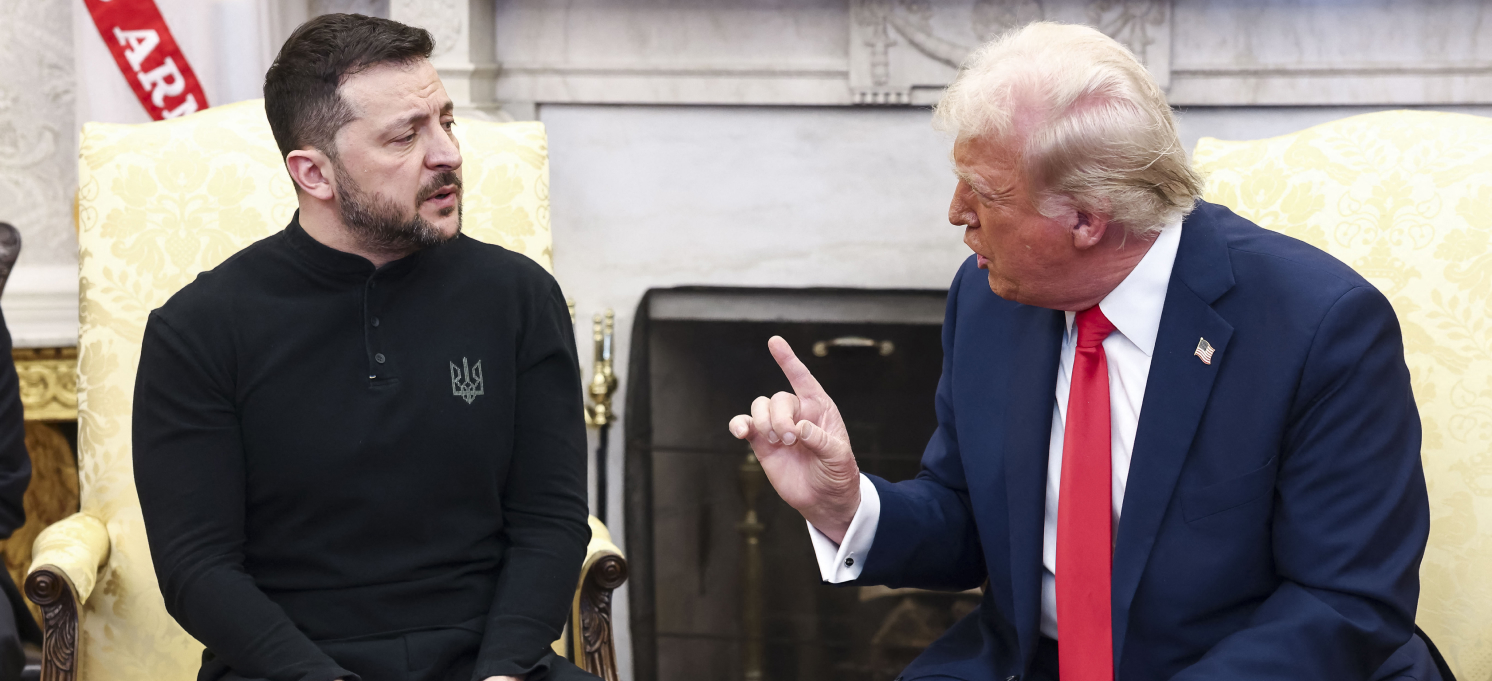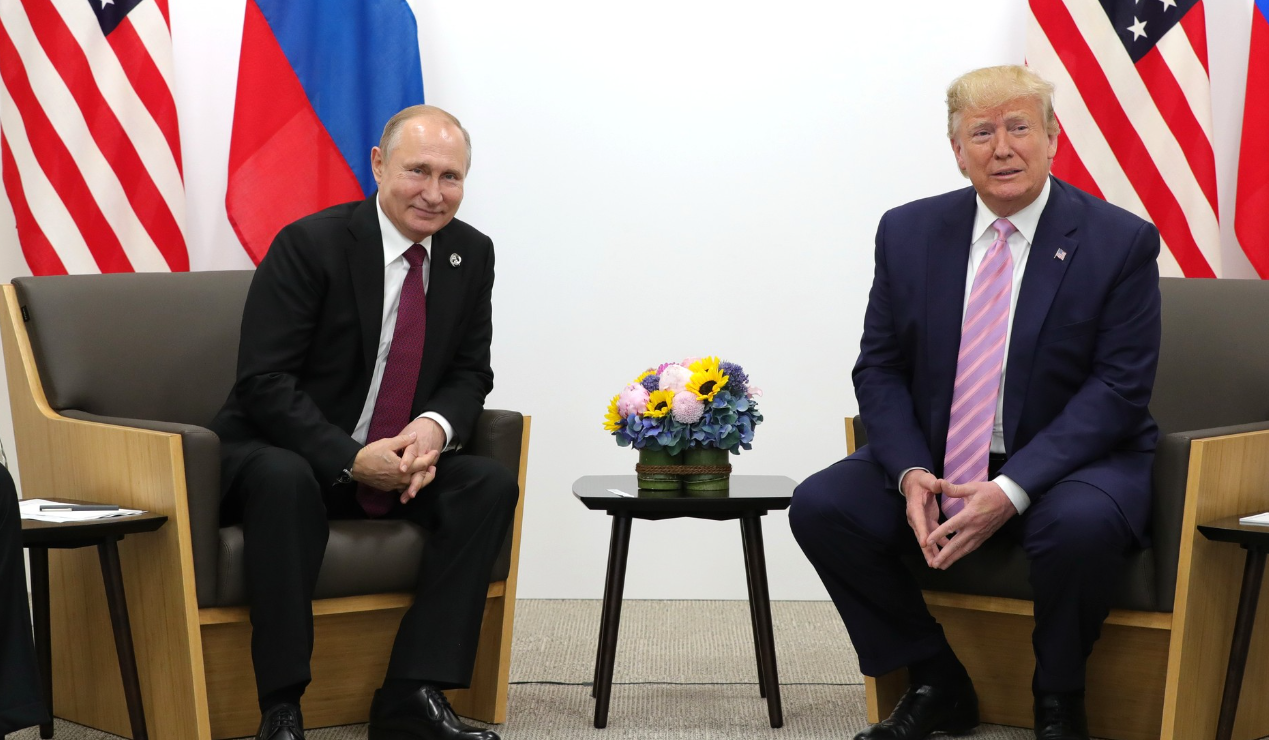
A landmark EU sanctions ruling?
Hello! Welcome to your weekly guide to the Russian economy — written by Alexander Kolyandr and Alexandra Prokopenko and brought to you by The Bell. This week our top story is a high-profile EU sanctions ruling — what it means for the Russian billionaires involved and the wider Western sanctions regime. We also look at the Central Bank’s efforts to cool the economy and the prospect of interest rate cuts.
EU court backs Fridman and Aven, but sanctions set to stay
An EU court made a high-profile ruling this week annulling European Council decisions to put Alfa Bank founders Mikhail Fridman and Petr Aven on its sanctions lists between February 2022 and March 2023. The ruling does not mean sanctions have been lifted from the pair, as a separate 2023 decision to hit them with sanctions was not affected. In Europe, the ruling is being seen as a major victory for Fridman and Aven, and a serious blow to Brussels’ sanctions regime. So to what extent is this an accurate assessment?
What’s going on?
The EU’s General Court handed down two (1, 2) rulings on Wednesday in favor of Russian billionaires and high-profile business figures Mikhail Fridman and Petr Aven. The pair are seeking the total removal of EU sanctions, under which they were placed at the very start of Russia’s invasion of Ukraine, through a number of lawsuits.. The court ruled that the European Council had failed to prove that the pair had supported, including from a financial perspective, the actions and policies of the Russian authorities in terms of Moscow’s actions and policies towards Ukraine, despite their closeness to Russian President Vladimir Putin.
The decision does not mean sanctions have been lifted from Fridman and Aven.
- Firstly, the rulings only concern the original European Council decision, issued 28 February 2022, to impose sanctions on the pair, and its renewal on 14 September 2022. The court did not consider or cancel a subsequent decision of March 2023 to re-impose sanctions, in which the EU changed the grounds for their inclusion on the list. This fact was explicitly highlighted in the court’s press statement. Aven and Fridman are also seeking to overturn that decision in separate lawsuits (1, 2). Securing a victory in those cases will be more complicated. In the March 2023 decision, the European Council included them on its sanctions list not for their hard-to-prove direct support of Russian aggression against Ukraine, but simply by the fact that each of them is a “leading business person involved in an economic sector providing a substantial source of revenue to the Government of the Russian Federation.” This fact will be much more difficult to challenge.
- Secondly, the court’s decisions can be challenged by any EU country at the European Court of Justice.
- Lastly, the court’s decision alone is not enough to actually lift sanctions. Formally, a unanimous decision of the 27 EU members is also required.
The decision has provoked a storm of criticism among both the Russian opposition and Western commentators. Ivan Zhdanov, former head of Alexei Navalny’s Anti-Corruption Foundation called the decision an “extraordinary disgrace and failure of the entire European sanctions regime.” Navalny’s widow, Yulia Navalnaya, said it was “harmful,” could further weaken the anti-war movement inside Russia and help Putin remain in power. The Financial Times called it a “blow” to Europe’s sanctions policy.
How did Fridman and Aven get here?
The Alfa Group founders are far from the only Russians seeking the lifting of sanctions through the courts. In the European legal database alone you can find a full cadre of Russia’s richest men also challenging the restrictions — Roman Abramovich, Dmitry Mazepin, Viktor Rashnikov, Dmitry Pumpyansky, Mikhail Gutseriev, Gennady Timchenko, Arkady Rotenberg and many others. So far, only a few have succeeded. Oleg Tinkov, the founder of Tinkoff Bank, and Arkady Volozh, the founder of Yandex — both of whom publicly criticized the war — have been removed. As have Grigory Berezkin, Alexander Shulgin and Farkhad Akhmedov, who succeeded in proving that the sanctions placed against them were unjustified.
Unlike Tinkov and Volozh, who not only condemned the war but lost their businesses in Russia, the Alfa Group duo have not made any major public political statements about the conflict. Aven and Fridman did not support Russia’s invasion of Ukraine, but they also avoided making any significant criticism of Putin or his policies.
Fridman, a native of Lviv in western Ukraine, came the closest to a public condemnation. At the start of the war in February 2022 he wrote a letter to employees of his British LetterOne firm in which he stated, “war can never be the answer” and expressed his “fervent desire … for the bloodshot to end.” But he stopped short of specifically condemning Russia. He also reportedly offered, via the US ambassador to Ukraine, to give part of his fortune towards rebuilding Ukraine in exchange for not being hit with sanctions. The proposal was not accepted.
Both Fridman and Aven had long lived outside Russia. In the lawsuits, their place of residence is listed as the UK. Aven now lives in Latvia, where he obtained citizenship. Britain’s National Crime Agency at one point launched an investigation against Fridman for sanctions avoidance. When it dropped the probe, Fridman left for Israel and last autumn returned to Moscow. In all likelihood, the pressure and restrictions of sanctions outweighed his desire to distance himself from Putin’s policies — which, in any case, both men say they have no influence over.
What does it mean for the EU’s sanctions regime?
Other Russian billionaires have launched cases against sanctions on the same grounds as Fridman and Aven, highlighting their inability to affect Kremlin policy. However, there is little chance that Fridman and Aven will win their second case, or that they will prevail in any appeal. It is even less likely that all EU countries will agree to remove them from the sanctions list or quietly leave them off the next renewal decision. The pair’s prominence, combined with vocal criticism of the half-heartedness of sanctions, prevents the EU from taking such a decision.
The only people certain to benefit from this week’s decision are European lawyers. Several law firms are working on behalf of Russian oligarchs to have sanctions lifted. The leader in terms of the number of cases is Belgian firm Daldewolf, which has offices in Brussels and the Democratic Republic of Congo, a former Belgian colony. Their clients include Abramovich and Timchenko. Mazepin and Rashnikov have retained Italian law firm Campa, which has a representative office in Brussels.
Aven and Fridman are using French firm Kiejman & Marembert, whose co-founder Georges Kiejman was one of France’s most famous lawyers. He had served as deputy heads of various ministries in three governments, was an advisor to two presidents and was involved in many high-profile trials. Filmmaker Roman Polanski, newspaper Charlie Hebdo and former president Nicolas Sarkozy were among his clients. When he died last year, the firm and the Fridman/Aven lawsuits were passed to his junior partner Theirry Marember.
Why the world should care
We see the chances of Fridman and Aven securing the complete removal of European sanctions as low. But the court’s decision does highlight the core problem of personal sanctions — they are imposed based on vague criteria and, more importantly, there is no defined route to have them lifted. On the one hand, this pushes the Russian elite into the arms of the Kremlin, and on the other, locks their wealth inside Russia. Until bureaucratic clarity is introduced into the personal sanctions regime, the main beneficiaries will remain European lawyers and lobbyists.
Central bank sees economy cooling
The central bank’s rate hikes in the second half of last year thet took borrowing costs to 16% managed to halt the depreciation of the ruble and cooled the growth in consumer lending, Governor Elvira Nabiullina told Russian lawmakers in a State Duma hearing this week. “The rate hike on 15 August by 3.5 percentage points to 12% stopped the weakening of the ruble, although additional rate hikes were required to finally stop the growth of inflation and devaluation expectations,” she said.
Nabiullina said that despite high borrowing costs, Russia’s corporate loan portfolio grew by 20% in 2024 — meaning the high rates that the Duma criticized throughout the year did not prevent businesses from borrowing. “If we had not increased the key rate, then inflation would have been much higher than the 7.4% that we achieved at the end of last year,” she said.
In normal conditions, rates of 16% are prohibitively high. The key rate has only been higher twice in Russia’s recent history — during the 2014 crisis (17%) and immediately after the invasion of Ukraine (20%). But since the Russian economy is by and large an untested experiment right now, and Russian borrowers are unable to access external financing due to sanctions, double-digit interest rates are not a barrier to lending.
In addition to helping to generally cool the economy, the high rate also reduces the finance ministry’s appetite to finance its own spending through borrowing. “Our bond rates have gone up. Now 10-year papers are being bought at a rate of 13.4%. That’s expensive,” Finance Minister Anton Siluanov said.
Nabiullina promised that the the rate will be cut when the central bank is convinced that the slowdown in inflation is stable and the population’s and businesses’ inflation expectations have returned to a normal level. Her comments shifted economists’ expectations for when the Central Bank will move to easing monetary policy towards the autumn from a previous consensus the first cut would come in June.
Why the world should care
One of the most important factors in the timing of interest rate cuts, it seems, is the dynamics of government spending. The main uncertainty here is not in the government’s intentions, but in what is happening in the war with Ukraine and its fallout for the ongoing economic shifts in Russia. Despite having Putin’s support, Nabiullina is under constant pressure from advocates of more aggressive state stimulus to cut rates to help enable investment in the real economy.
Figures of the week
- Russia’s current account surplus in March was $13.4 billion, up from $5.2 billion in February. The growth comes from a significant increase in goods exports and a decrease in the negative contribution of primary and secondary income, the Central Bank said in a report.
- From April 2-8, the rate of weekly inflation increased to 0.16% from 0.1% in the previous week. On an annual basis it climbed to 7.79% from 7.62%. The price of food products grow 0.22%, while the basket of non-food items was up by 0.12%.
- The World Bank upped its growth forecast for Russia’s economy this year. It sees GDP expanding by 2.2% instead of the 1.3% it forecast in January. It also increased its forecast for 2025 from 0.9% to 1.1%, and lefts its 2026 forecast of 1.1% growth unchanged.
- The share of Chinese yuan in global reserves fell to its lowest level for three years, Reuters reported citing IMF data. The currency accounted for around 2.29% of global reserves — well below the 2.83% in the first quarter of 2022 and the lowest level since the end of 2020.
Further reading
Is the Kremlin Overconfident About Russia’s Economic Stability?
Western Sanctions on Russia Should Be More Pragmatic and Less Punitive





